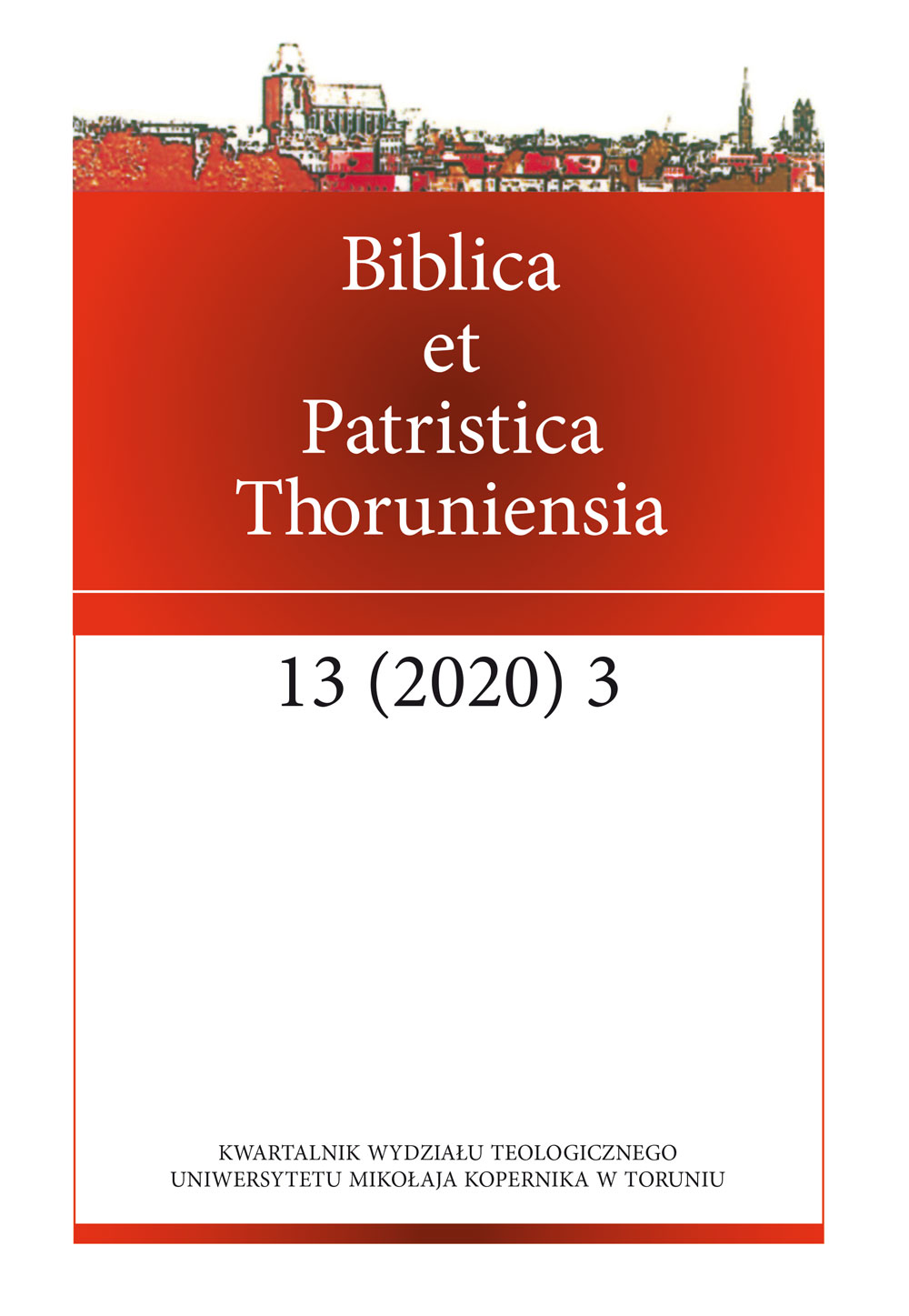Shabbat as a celebration of time in A.J. Heschel's teaching
DOI:
https://doi.org/10.12775/BPTh.2020.014Keywords
A.J. Heschel, Judaism, Sabbath, time, celebrationAbstract
The subject of the analysis in this article (Shabbat as a celebration of time in A.J. Heschel's teaching) is the Jewish holy day - the Sabbath, which was described with unusual skill and depth by Abraham Joshua Heschel mainly in the work "The Sabbath: Its Meaning for Modern Man". This book beautifully describes the rabbinical, Kabbalistic and Hasidic understanding of the Sabbath experience. The author skillfully links here the old and venerable Jewish heritage with the situation of modern people. In this work, Heschel developed one of the main motives of his thought - the idea of holiness in time. He presents Judaism as a religion of time and indicates the essence and significance of time in the life of an individual Jew and entire communities. Heschel is not so much convincing about the idea of the Sabbath, it is not so much proof of the need to observe the sanctity of the day, but rather shows its meaning and manner of celebration. As the Jewish Rabbi argues, experiencing the Sabbath is not about merely abstaining from physical activity, but about achieving the right state of spirit, trying to "testing" of saving reality. Observing the Sabbath is not only abstaining from work, but also creating a menucha, rest, which is also a celebration. Specific commandments regarding the Sabbath celebration are simply used to fulfill the mitzvah, because for Heschel mitzvah is "prayer in the form of an act". The publication will sequentially present: the Sabbath holiness as understood by Heschel, his ways of sanctifying and making eternal that day, and the proper way of celebration.References
Heschel A.J., Bóg szukający człowieka, A. Gorzkowski (tłum.), Kraków 2007.
Heschel A.J., Człowiek szukający Boga, V. Reder (tłum.), Kraków 2008.
Heschel A.J., God in Serach of Man: A Philosophy of Judaism, New York 1955;
Heschel A.J., Man Is Not Alone: A Philosophy of Religion, New York 1951.
Heschel A.J., Szabat, H. Halkowski (tłum.), Gdańsk 1994.
Heschel A.J., The Prophets, New York 1962.
Heschel A.J., Who Is Man?, Stanford 1965.
Heschel, A.J., The Sabbath: Its Meaning for Modern Man, New York 1951.
Heschel A.J., Moral Grandeur and Spiritual Audacity, New York 1996.
Neusner J., Neusner N.M. (red.), An Anthology of Abraham Joshua Heschel, Lanham and New York, London 1990.
Sherman F., The Promise of Heschel, Philadelphia and New York 1970.
Szczerbiński W., Abrahama Joshuy Heschela filozofia człowieka, Lublin 2000.
Umen S., Jewish Concepts and Reflections, New York 1962.
Downloads
Published
How to Cite
Issue
Section
License
CC BY ND 4.0. The Creator/Contributor is the Licensor, who grants the Licensee a non-exclusive license to use the Work on the fields indicated in the License Agreement.
- The Licensor grants the Licensee a non-exclusive license to use the Work/related rights item specified in § 1 within the following fields: a) recording of Work/related rights item; b) reproduction (multiplication) of Work/related rights item in print and digital technology (e-book, audiobook); c) placing the copies of the multiplied Work/related rights item on the market; d) entering the Work/related rights item to computer memory; e) distribution of the work in electronic version in the open access form on the basis of Creative Commons license (CC BY-ND 3.0) via the digital platform of the Nicolaus Copernicus University Press and file repository of the Nicolaus Copernicus University.
- Usage of the recorded Work by the Licensee within the above fields is not restricted by time, numbers or territory.
- The Licensor grants the license for the Work/related rights item to the Licensee free of charge and for an unspecified period of time.
FULL TEXT License Agreement
Stats
Number of views and downloads: 1536
Number of citations: 0



